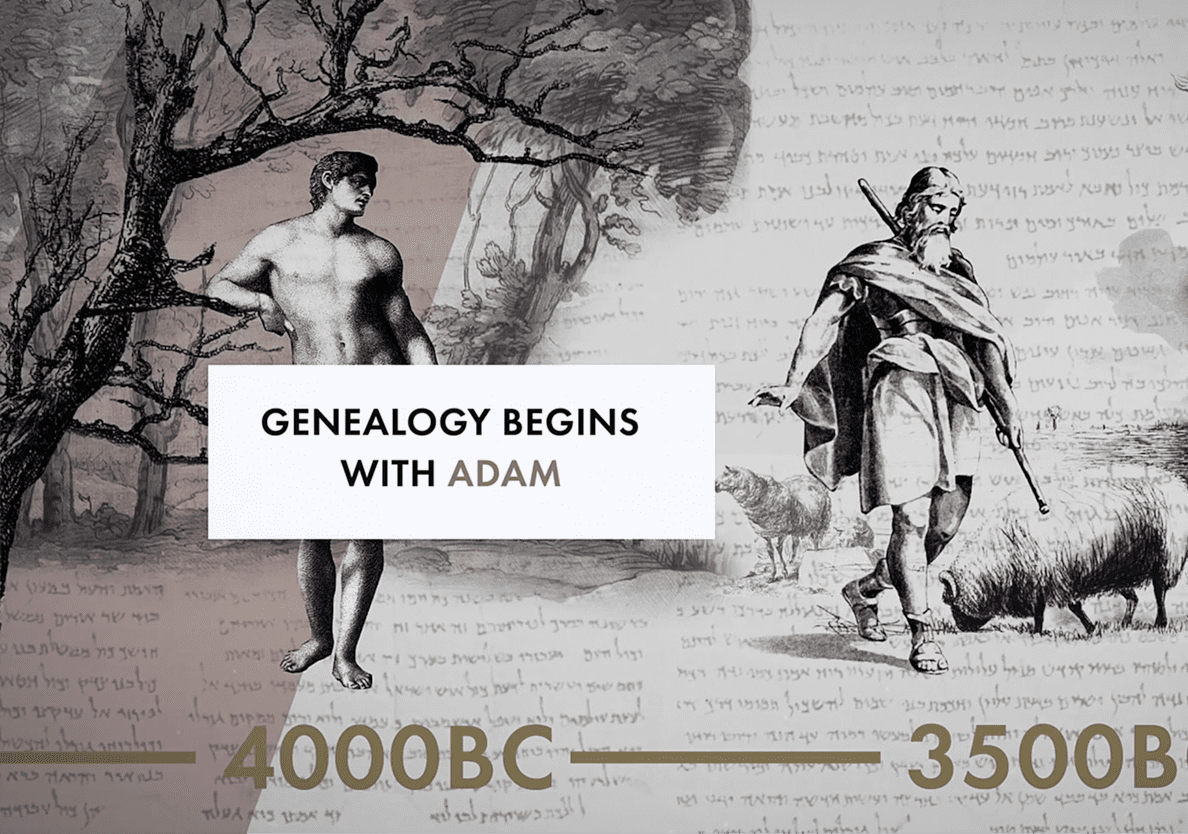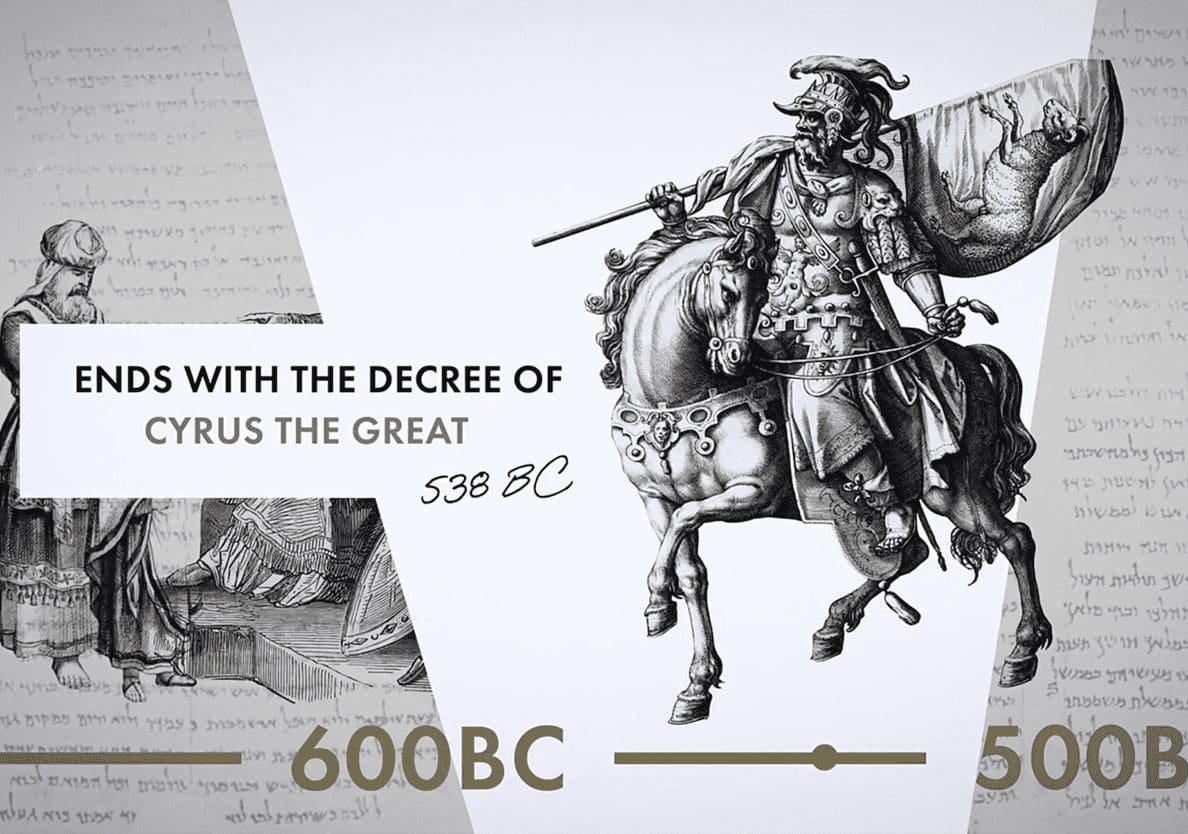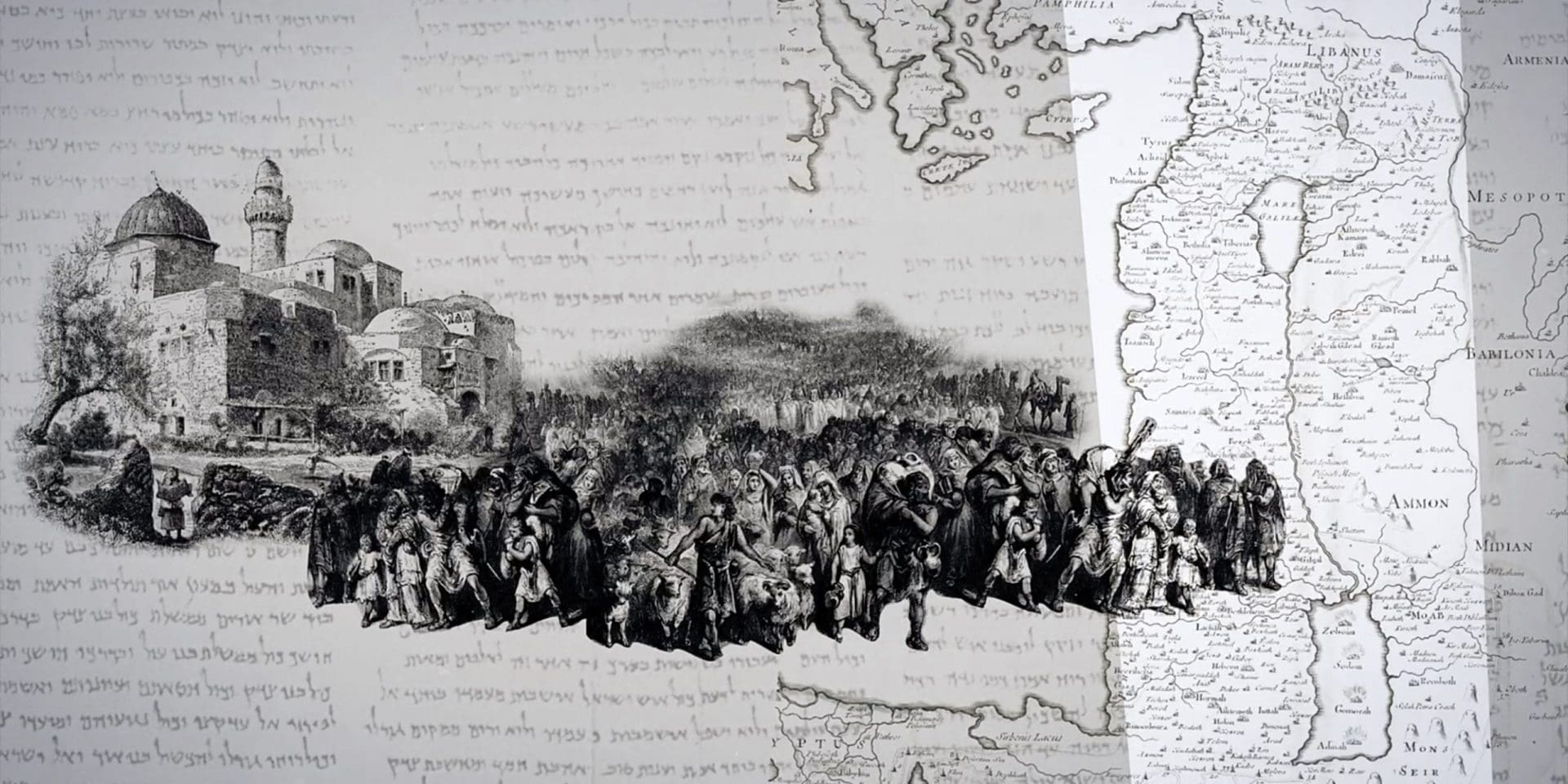The Old Testament books of 1 & 2 Chronicles cover the widest swath of history of any book of the Bible. The opening genealogy begins with Adam, the first human man, and ends with the releasing of the exiles by the decree of Cyrus the Great in 538 BC. The main focus of the books, however, is the time period of the kings of Israel and Judah, which is at first surprising given the other three books of the Bible dedicated to this task (2 Samuel, 1 & 2 Kings). In fact, about 50% of the information in Chronicles is already found in 2 Samuel and 1 & 2 Kings. The other 50% of new information paired with the editing choices of Chronicles’ author, allow us to see the books’ theological insight – the purpose for which it was written.
The authorship of the books is tied into its date of composition. The date of writing must be after the time of the exile, as the end of the exile is recorded. The end of 2 Chronicles is also repeated in the opening of the book of Ezra. This flows nicely with the Jewish tradition of the Talmud that claims Ezra as the Chronicler. Certainly, Ezra is a possibility, and the issue of authorship has been debated extensively using book themes, grammar and word use among others, but as the books themselves don’t claim an author, it’s still speculative. Nevertheless, Chronicles is often dated to the time of the Persian Empire in the 5th century BC (400s) with many scholars landing on a rounded guess of often to 450BC.
“A clear theme is the unity of God’s people, of “all Israel”; a phrase used 40 times in Chronicles while only 18 times in Kings.”
The name Chronicles comes from something that Jerome (translator of the Latin Vulgate) wrote in his Latin Vulgate when he called the books, “the chronicle of the whole sacred history”. He gets this from ultimately comes from the Hebrew title for the books, that literally means “the affairs of the days” (In Hebrew “dibre hayyamim”) or “annals” or “chronicles”.
This Hebrew phrase is used 33 times in 1 & 2 Kings in reference to the sources being used to write Kings, and it’s used once in 1 Chronicles 27:24 to reference the official court record of David’s reign (“…the number was not entered in the book of the annals of King David.”). The Septuagint has an altogether different title for Chronicles, calling it instead a word that means “things left out” (in Greek, “Paraleipomenon”) referencing its additional and supplementary material to that of the Kings and Samuel.


Looking at what content the author of Chronicles repeated from the other Biblical books, what content he added, and the language he chose to use reveals for us some of the themes and perhaps the overall Biblical purpose of the book. A clear theme is the unity of God’s people, of “all Israel”; a phrase used 40 times in Chronicles while only 18 times in Kings. The Davidic covenant is also a clear focus as most of Chronicles is about David and Solomon directly while the rest highlights their descendants as the kings of Judah. The Jerusalem Temple and the worship practices surrounding it are another clear focus. God’s justice in rewarding obedience and punishing disobedience in His covenant people, the importance of having an upright and willing heart over bland obedience, and an effort to record previously left out prayers of some major Kings (David in 1 Chron. 29, Jehoshaphat in 2 Chron. 20, and Hezekiah in 2 Chron. 30), rounds out some of the more personal themes in Chronicles.
Overall, it’s easy to see that the Chronicles were written to a new generation of Israelites taking back the Promised Land. These exiles had returned. What did God have for them now? And what exactly did their history mean? Chronicles seems to have been written to answer these questions and bring all of Israel’s history back into a guiding role for a new generation of covenant people[1].

Corie Bobechko is a daily co-host, speaker, and writer of Bible Discovery. She also hosts a YouTube channel that shows how history and archaeology prove the Bible. Her heart for seekers and skeptics has led her to seek truth and share it with others. Corie also has a Bachelor of Theology from Canada Christian College.
[1] For this reason, some have called Chronicles the “Deuteronomy” of the exiles. As Deuteronomy was written to the next generation of Israel getting ready to inherit the promised land, so Chronicles was written to the next generation of Israel coming back to the Promised Land after exile. They needed to know how to interact with God, what He expected of them, what also laid ahead (i.e. the Davidic covenant) and largely what had gone wrong with their ancestors that got them to this position in the first place.






